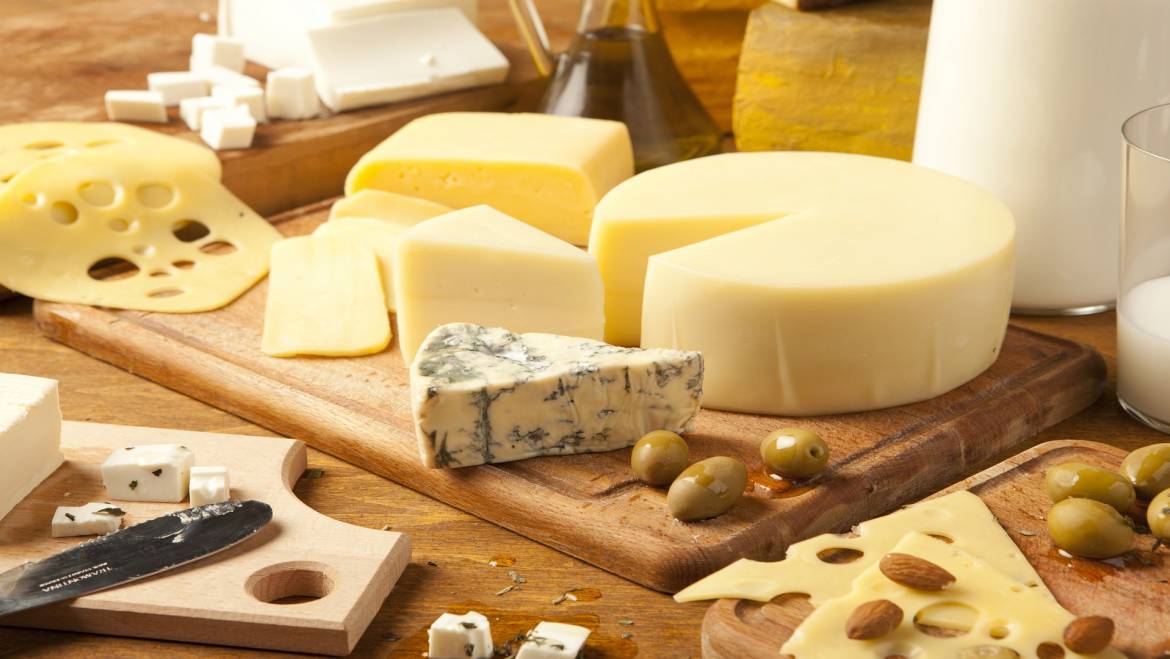Often demonized by the presence of saturated fatty acids, it actually has a whole series of positive effects on our health. This is at least what was stated in a study recently published in the American Journal of Clinical Nutrition. Each food has a different impact on our health that can not be tied to a single component.
Therefore, despite the high percentage of saturated fatty acids, cheese does not have the negative effect on the increase in blood cholesterol that could be expected. On the contrary, according to nutritionist Arne Astrup of the University of Copenhagen, co-author of the study in question: “The research clearly demonstrates important benefits of cheeses on health, in the prevention of type 2 diabetes, cardiovascular diseases and cancers”.
The 6 benefits of cheese
But it is not the first time that research suggests that consuming cheese can positively affect our health. Let’s see together, in detail, the 6 benefits recognized to the cheese, counting the various studies that over the years have had as their object the tasty food:
It could prevent liver cancer: according to a recent study by Texas A & M University (April 2017) eating cheese could counter the development of liver cancer and generally improve liver health. The research also found that aged cheeses such as brie and cheddar have the property of increasing life expectancy by up to 25%. This is because such cheeses contain a compound called spermidine, which can prevent hepatic fibrosis and “hepatocellular carcinoma”, the most common type of liver cancer.
Enhance the immune system: another study of 2010 found that eating a piece of cheese a day could strengthen the immune system in older people. Research from the University of Turku in Finland found, in particular, that probiotic cheese has the ability to prevent age-related deterioration of the immune system. For the study in question, volunteers, aged between 72 and 103, were asked to be separated into 2 groups to eat a slice of placebo or Gouda probiotic cheese for breakfast for four weeks. At the end of the study period it was found that those who ate probiotic cheese showed a clear strengthening of the immune system. The lead author of the study, Dr. Fandi Ibrahim, said: “The intake of probiotic bacteria is able to improve the immune response through food and now we have found that even the cheese can be a vector of the same bacteria”.
Elixir of long life: in 2015 a study suggested that there is a link between cheese consumption and a long healthy life. Scientists at the University of Aarhus in Denmark examined the fact that the French tend to live a long and healthy life, despite a diet rich in saturated fatty acids, a phenomenon known as the “French paradox”. The French have a low incidence of heart disease and have an average life expectancy of 82 years, while consuming up to 23.9 kg of cheese a year. The British who eat 11.6 kg of cheese a year suffer twice the incidence of cardiovascular disease and their life expectancy is 81 years. Hanne Bertram, a food scientist at the university, compared urine and faecal samples from 15 men whose diet contained cheese or milk with those fed on a diet containing only butter and not other dairy products. It was discovered that those whose diets included cheese possessed a higher level of butyric acid, a compound that has been linked to a reduced incidence of obesity and a higher metabolism. Bertram said these findings “suggest a role for intestinal microbes in further strengthening the connection between cheese and the French paradox”.
Prevents tooth loss: as well as brushing them regularly, eating cheese could benefit the teeth. The 2013 study by the Academy of General Dentistry in America found that cheese not only makes the mouth more alkaline (reducing the need for dental treatment) but also creates a protective film around the teeth. The researchers divided 68 children into three groups. One group was asked to eat a daily portion of cheese, another a daily portion of sugar-free yoghurt and the last group was asked to drink a glass of milk a day. By measuring pH levels both before and after the test, the researchers found that those who ate the cheese showed a rapid increase in the pH level unlike those who ate yogurt or drank the milk, which reported no change . The lead author of the study, Vipul Yadav said: “The higher the pH level is above 5.5, the less likely it is to develop caries”. Dr. Seung-Hee Rhee, spokesperson for the Academy of General Dentistry, added: “It seems that dairy products make your mouth healthier. Not only dairy products are a healthy alternative to snacks filled with carbohydrates or sugar, but they can also be considered as preventive measures against caries. “
Help to lose weight: in 2009 a group of Australian researchers claimed that a diet rich in dairy products can help overweight people lose weight. Researchers at the Curtin University of Technology in Perth have recruited 40 volunteers, then divided into 2 groups. One part followed a normal low-calorie diet and one part included cheese, yogurt and low-fat milk. It was discovered that those who had consumed three to five portions of dairy products a day had lost more weight. They also had lower blood pressure, less abdominal fat, significantly improving the possibility of avoiding heart disease and diabetes. The principal researcher, Dr. Wendy Chan She Ping Delfos said: “Many people believe that when trying to lose weight, dairy products should be cut off from their diet as they are high in fat”, “This study has demonstrated that when trying to lose weight, people can benefit by increasing the amount of dairy they consume, provided that during the period of weight loss the total energy intake is lower than their needs “- and concludes -” It will help you to reduce blood pressure and will also cause a greater loss of total abdominal fat, so you will lose more weight on your stomach. “
It makes us smarter: a 2012 study conducted by American and Australian researchers at the International Dairy Journal showed that those who regularly consume dairy products including cheese, milk and yogurt, perform better mental capacity tests than those who they never consume dairy products. The researchers asked 900 men and women to carry out a series of cognitive challenges that tested their visual, spatial, and verbal skills. It was found that those who obtained the highest scores were also the largest regular consumers of dairy products


 Credits
Credits